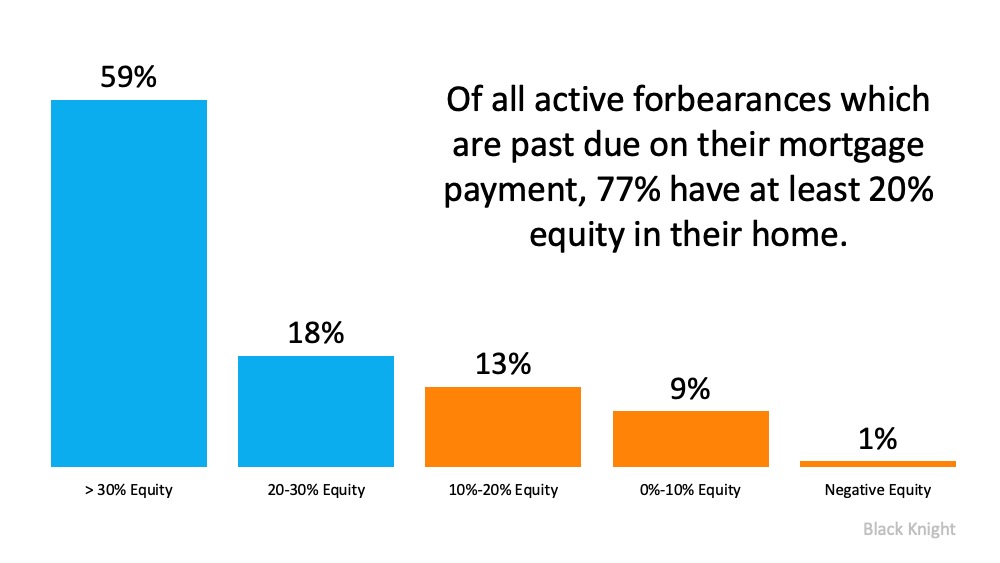
“Many think we may see a rush of foreclosures this fall, but the facts just don’t add up in this case.”
The health crisis we face as a country has led businesses all over the nation to reduce or discontinue their services altogether. This pause in the economy has greatly impacted the workforce and as a result, many people have been laid off or furloughed. Naturally, that would lead many to believe we might see a rush of foreclosures like we saw in 2008. The market today, however, is very different from 2008.
The concern of more foreclosures based on those that are out of work is one that we need to understand fully. There are two reasons we won’t see a rush of foreclosures this fall: forbearance extension options and strong homeowner equity.
1. Forbearance Extension
Forbearance, according to the Consumer Financial Protection Bureau (CFPB), is “when your mortgage servicer or lender allows you to temporarily pay your mortgage at a lower payment or pause paying your mortgage.” This is an option for those who need immediate relief. In today’s economy, the CFPB has given homeowners a way to extend their forbearance, which will greatly assist those families who need it at this critical time.
Under the CARES Act, the CFPB notes:
“If you experience financial hardship due to the coronavirus pandemic, you have a right to request and obtain a forbearance for up to 180 days. You also have the right to request and obtain an extension for up to another 180 days (for a total of up to 360 days).”
2. Strong Homeowner Equity
Equity is also working in favor of today’s homeowners. This savings is another reason why we won’t see substantial foreclosures in the near future. Today’s homeowners who are in forbearance actually have more equity in their homes than what the market experienced in 2008.
The Mortgage Monitor report from Black Knight indicates that of all active forbearances which are past due on their mortgage payment, 77% have at least 20% equity in their homes (See graph below): Black Knight notes:
Black Knight notes:
“The high level of equity provides options for homeowners, policymakers, mortgage investors and servicers in helping to avoid downstream foreclosure activity and default-related losses.”
Bottom Line
Many think we may see a rush of foreclosures this fall, but the facts just don’t add up in this case. Today’s real estate market is very different from 2008 when we saw many homeowners walk away when they owed more than their homes were worth. This time, equity is stronger and plans are in place to help those affected weather the storm.
To view original article, visit Keeping Current Matters.
Are There More Homes for Sale Where You Live?
Increased housing supply spells good news for consumers who want to see more properties before making purchasing decisions.
Where Will You Go After You Sell?
Want to see what’s available? Your real estate agent can show you what homes are for sale in your area, so you can see if there’s one that works for you and your needs.
Helpful Negotiation Tactics for Today’s Housing Market
One thing is true whether you’re a buyer or a seller, and that’s how much your agent can help you throughout the process.
What Every Homeowner Should Know About Their Equity
Understanding how much equity you have is the first step to unlocking what you can afford when you move.
Why the Sandwich Generation Is Buying Multi-Generational Homes
If you’re thinking about buying a multi-generational home, working with a local real estate agent is essential.
The Biggest Mistakes Sellers Are Making Right Now
If you aren’t working with an agent, you may not realize the mistakes you are making. And they may be costing you!





